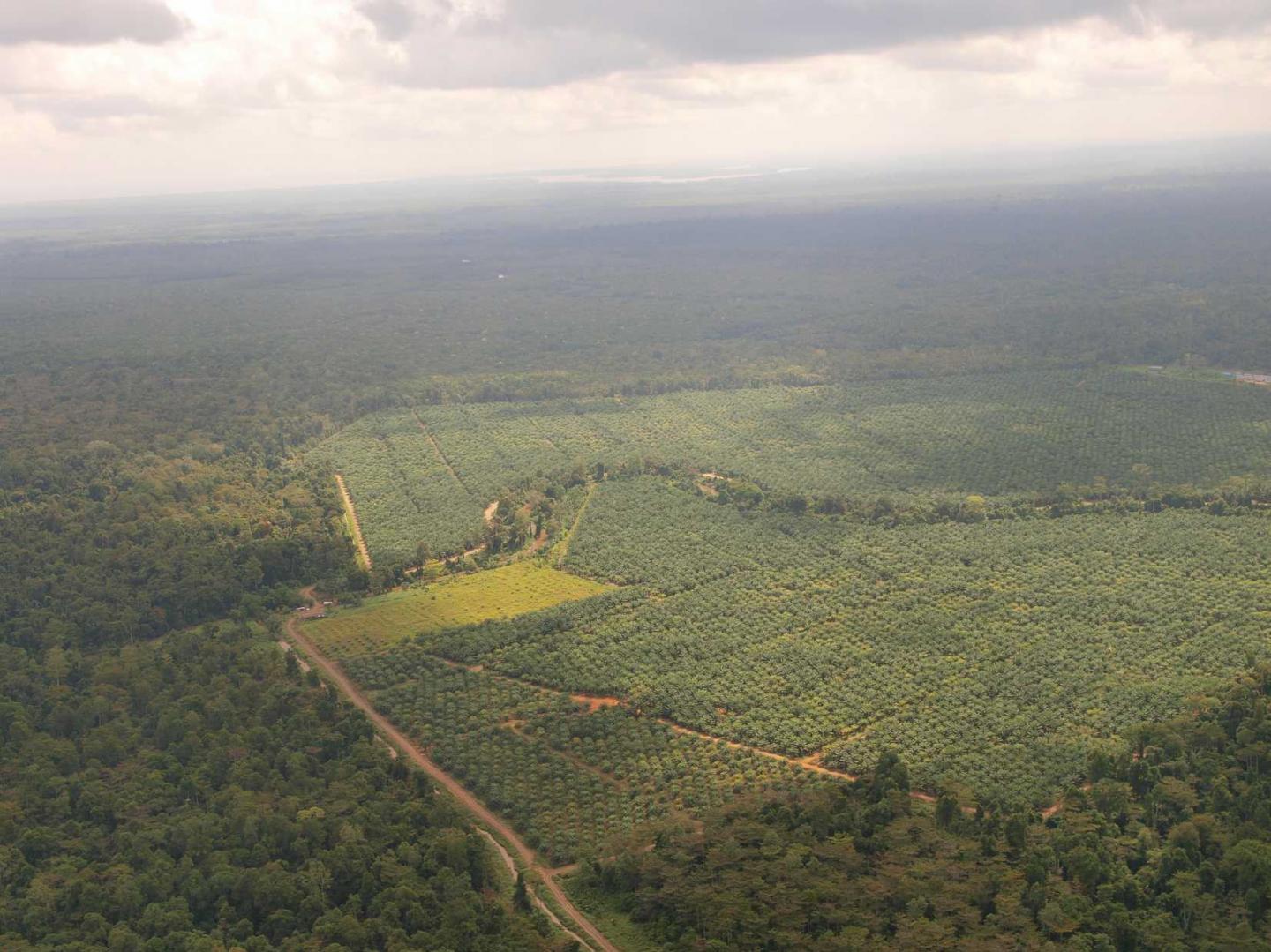This creates a corridor for Borneo’s endangered wildlife

Credit: Robert Risch, Rhino and Forest Fund e.V. (RFF)
The foundation for this unique project will be laid today at the Heart-of-Borneo-conference in Malaysia. The project will buy palm oil plantations, clear them in parts and reforest them with near-natural rainforest. In this way fragmented areas of rainforest can be joined up again. The aim is to link up key forest areas to minimise the threat of extinction of isolated wildlife populations.
This planned pilot project contributes to the fulfilment of the Aichi Biodiversity Targets set by the Convention on Biological Diversity (CBD) and the climate goals set at the 2014 UN-Climate Change Actions Summit, where it was agreed to reforest 350 million ha of rainforest and to re-naturise degraded land by 2030.
So far, however, there is a lack of evidence-based experience in practice. With this pilot scheme, the Rhino and Forest Fund (RFF) would like to close this knowledge gap. In the coming years, the fund aims to convert 15.5 ha of palm oil plantations back into rainforest. A research team from the German Leibniz Institute for Zoo and Wildlife Research (Leibniz-IZW) together with environmental experts from Zürich want to provide scientific monitoring for this project. “The signing of a purchase agreement at the current Heart-of-Borneo conference in Kota Kinabalu, Malaysia, marks a breakthrough in the creation of a significant wildlife corridor. In order to prevent mass extinction of species, isolated forest areas must be reconnected as soon as possible. Therefore the costly acquisition of certain areas of oil palm plantations and their conversion into protected areas are indispensable. It is very surprising that no one has ever done this before”, says Robert Risch, board member of RFF and employee of the Leibniz-IZW. “We are also very proud that the government of Sabah today officially recognises the RFF for its achievements in habitat conservation and we would like to thank the local authorities for their great and long-standing support.”
Through the purchase of oil palm plantation areas, the RFF creates the basis for a central land connection between the isolated wildlife reserves of Tabin and Kulamba in the east of the Malaysian state of Sabah on the island of Borneo. Both protected areas are of central importance for the conservation of highly endangered and threatened species such as the hairy-nosed otter, Borneo-orang-utan, Sunda clouded leopard, Borneo-elephant and Borneo-banteng.
“The challenge is to investigate the optimal transformation of oil palm plantations and their degraded soils into near-natural rainforests. Knowledge gained from this enables us to make statements about future optimal surface reconstruction,” explains Dr Philippe Saner, expert for environmental studies from Switzerland and founding member of the RFF.
“I am particularly interested in the repopulation with wildlife of those areas that have hardly any species left,” explains Dr Petra Kretzschmar, ecologist at the Leibniz-IZW and board member of RFF. “So far, the main focus has been on the loss of biodiversity, but we want to find out how long it takes for palm oil plantations with very little species to return to their original biodiversity after re-naturation. Scientific monitoring of the entire transformation process is important in order to provide recommendations for a future sustainable transformation of agricultural land into near-natural rainforest.”
“To realise this monitoring the scientists are now looking for funding from state sources. But it is also a great opportunity for businesses to make a sustainable contribution to nature and set the course for future generations,” explains Steven Seet, Head of Public Relations at the Leibniz-IZW and member of the RFF’s executive board.
The areas acquired by the RFF through donations are converted into protected land by the government of Sabah and reforested by the RFF. The resulting wildlife corridor is to be continuously expanded over the next few years through further acquisitions.
The Germany-based RFF has been active on Borneo since 2010 and in collaboration with the Sabah Forestry Department and with the support of the Sabah Wildlife Departments has already transferred over 2,000 ha of endangered forest areas back into strictly protected habitats. What is more the RFF has up until now reforested 24 ha of destroyed rainforest. The RFF is a spin-off from the Leibniz-IZW and supports its research initiatives. The RFF has been supported by the German Leipzig Zoo since its foundation in 2009.
###
Contact:
Dr Petra Kretzschmar
Department Evolutionary Ecology, Board Member RFF
Leibniz Institute for Zoo and Wildlife Research (Leibniz-IZW) in the Forschungsverbund Berlin e.V.
Alfred-Kowalke-Straße 17, 10315 Berlin
Germany
Phone: +49 30 5168513
E-mail: [email protected]
Robert Risch
Department Evolutionary Ecology, Board Member RFF
Leibniz Institute for Zoo and Wildlife Research (Leibniz-IZW) in the Forschungsverbund Berlin e.V.
Alfred-Kowalke-Straße 17, 10315 Berlin
Germany
Phone: Tel.: +49 30 5168513
Phone: +49 7851-6366281
E-mail: [email protected]; [email protected]
Dr Philippe Saner
Experte für Umweltwissenschaften, Gründungsmitglied RFF
Datascientist.ch
Bellerivestrasse 59
8008 Zürich
Schweiz
Cell phone: +41 76 581 81 88
E-mail: [email protected]
Steven Seet
Head Science Communication, Board Member RFF
Leibniz Institute for Zoo and Wildlife Research (Leibniz-IZW) in the Forschungsverbund Berlin e.V.
Alfred-Kowalke-Straße 17, 10315 Berlin
Germany
Phone: +49 30 5168125
Cell phone: +49 177 857 26 73
E-mail: [email protected]
Rhino and Forest Fund e.V.
Auf dem Stein 2
77694 Kehl
Germany
Phone: +49 7851-6366281
Fax: +49 7851-6366282
E-mail: [email protected]
Web: http://www.
Media Contact
Steven Seet
[email protected]




